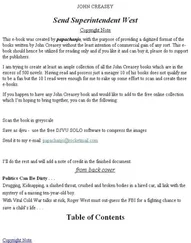Another major contributor to the modern science that Smith absorbed was John Locke (1632–1704). Locke’s writings on education and on the theory of knowledge became a staple part of the understanding of psychology during the Enlightenment. Locke argued that all knowledge was based on experience and observation. He rejected the idea that human minds came stocked with innate ideas. Instead humans arrive with a tabula rasa or clean slate, and then proceed to build the content of their minds through experience of the world. All of our ideas arise from sense perceptions or as the result of reflection on sense perceptions and come to form increasingly complex thought processes. In terms of education, this led Locke to stress the importance of socialization and the need to state ideas in as plain and straightforward a fashion as possible.
The ideas of Newton and Locke form the backdrop to the thinking of the man who is the single most important influence on Adam Smith’s thinking: David Hume. Hume came from a very similar background to Smith and, being around a decade older, had already passed through the Scottish university system and written his first great work, the Treatise of Human Nature , by the time Smith was at Oxford in the 1740s. In Hume’s hands, the logic of the experimental method and the Lockean theory of ideas were pressed inexorably to their sceptical conclusions: the idea ultimately being reached that we must accept that all human knowledge is based on conditional probabilities acquired from experience by induction. In other words, there could never be any definitive ‘proof’ or truth outside systems of human concepts such as mathematics.
Hume begins the Treatise by noting that science is plagued by excessive abstraction and dedication to systems of thought. The only response to disputes between the adherents of these different systems of thought is recourse to empirical evidence. For Hume, all science is based on human understanding, and so all science must be based on a secure understanding of how human beings understand: on what he called the science of man. In turn, the only secure basis for such a science of man is experience and observation. Like natural scientists, we must conduct experiments and generalize from them. But experiments in the science of man cannot be the same as experiments in the natural sciences: we cannot manipulate people in the same way we mix chemicals. For Hume, we must instead have recourse to the observation of human life as it is and as it has been lived by actual people. If we look for examples and then compare them, we will gradually be able to build a picture of what is universal in human experience. The evidence that this provides us with will give insight into what motivates human behaviour and how humans think. Crucially for the development of the ideas of Smith and the Scottish Enlightenment, this led to the view that history was the data for a science of society.
The most controversial part of Hume’s Treatise is his deconstruction of how humans come to make connections between the ideas that they draw from experience. Perhaps the easiest way to understand his position is to trace his basic understanding of the core scientific idea of cause and effect. Hume sets out to understand how humans make connections between phenomena. His answer is to say that we attribute the relationship between two phenomena to be one of causation – that one thing causes another. Hume then breaks down the steps in how we form that sort of belief. He argues that we draw on our experience of the world to observe that the two phenomena are closely connected, that one of them precedes the other, and that they have always been found this way. In the classic example, one billiard ball strikes another and so ‘causes’ the movement of the second ball. Hume says that this leads us to form a belief that there is a ‘necessary connexion’ between the two. So far this is similar to Locke’s theory, but it is where Hume goes next that built his reputation as a sceptic. Hume argues that this form of knowledge is based on habit rather than reason.
Hume wants to understand why we think like this. The first thing to note is that we come to believe that the two events are connected because there have been repeated cases in our experience where they have been. The evidence of our senses is corroborated by multiple examples. But then Hume raises the question of why we assume that future cases will always be like past cases. His answer is that we believe this because we form beliefs based on custom and habit rather than demonstrative reason. Knowledge and expectations are based on induction from past experience. Humans believe that the world will continue as it has always done, that there is a ‘necessary connexion’ between two phenomena that are always found together; but the key point is that we cannot prove this through detached philosophical reasoning.
Hume’s point is that constant conjunction from past experience can allow us to believe that the sun will rise tomorrow as it rose today, but we cannot provide any definitive proof that this will be the case. If our knowledge of nature is based on generalization from past experience, we can never reach absolutely certain knowledge about the future. Instead we can develop increasingly sophisticated descriptions of past behaviour that we assume will allow us to understand the future, but such beliefs rest on probability rather than demonstration. For Hume, human reason is limited and conditional in what it can hope to achieve, but this is not a counsel of despair. Instead, for him, it is a call to modesty, a realization that beyond generalization from evidence we have no reliable source of knowledge. Hume thought that metaphysics was a waste of time. All we can do is refine generalizations from experience and come to increasingly accurate descriptions of the general forces that drive the natural world. The human mind is an increasingly sophisticated system of generalization from experience, and the scientific method is merely the deliberate formulation of this process into a method of inquiry. Once we realize this, we recognize that the experimental approach, the generation of evidence from observation, is the only reliable guide to the uniform operation of nature. Hume summed up his position by noting that: ‘A true sceptic will be diffident of his philosophical doubts, as well as of his philosophical convictions; and will never refuse any innocent satisfaction, which offers itself, on account of them.’ 5
The power of Hume’s philosophical exploration of the basis of human knowledge made a deep impression on Adam Smith. Nicholas Phillipson has described Smith as the ‘perfect Humean’, 6and while this may be taking things too far, it is nonetheless clear that Hume deeply influenced his thinking on the nature of philosophy and science, the topic of the next chapter.
1 For details on Smith’s time at Glasgow, see Scott, Adam Smith as Student and Professor. 2 For a contemporary biography, see Stewart, ‘Account of the Life and Writings of Adam Smith’. The best source for biographical details on Smith is Ross’s The Life of Adam Smith. Phillipson’s Adam Smith is the best intellectual biography, whilst Kennedy’s Adam Smith is the most rounded introduction to his economics and moral philosophy. Other general overviews include Lindgren’s Social Philosophy of Adam Smith and Muller’s Adam Smith in His Time and Ours. 3 The clearest introduction to the subject is Broadie’s The Scottish Enlightenment. The most comprehensive account of the social and political thought of the period is Berry’s Social Theory of the Scottish Enlightenment. 4 See Montes, ‘Newtonianism and Adam Smith’. 5 Hume, Treatise, 273. 6 Phillipson, Adam Smith, 71. Rasmussen’s The Infidel and the Professor is the best discussion of the close intellectual friendship between Hume and Smith.
Читать дальше












